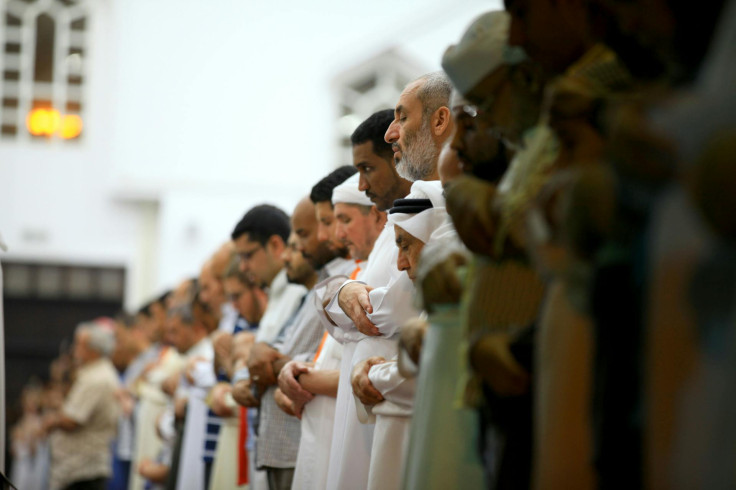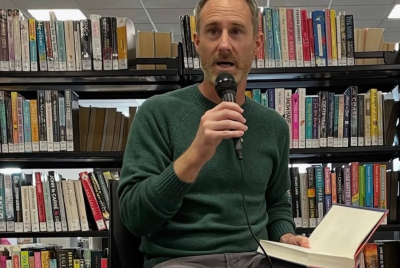Outrage in Spain as Town BANS Muslim Eid Celebrations in Public Spaces—Critics Slam 'Islamophobic' Move

The southeastern Spanish town of Jumilla has ignited a constitutional firestorm by becoming the first municipality in the country to ban Muslim religious celebrations from public spaces, with critics condemning the move as 'Islamophobic' whilst supporters declare 'Spain will forever be Christian.'
The controversial decision in Jumilla - home to approximately 27,000 residents, including a 7.5% Muslim community - has drawn sharp criticism from constitutional lawyers, religious leaders, and political opponents who warn the ban violates Spain's secular democratic principles.
What The Ban is All About?
The motion, proposed by the conservative People's Party (PP) and supported through abstention by the far-right Vox party, states that 'municipal sports facilities cannot be used for religious, cultural or social activities alien to our identity unless organised by the local authority.'
🇪🇸 Jumilla hace historia.
— VOX Murcia (@Vox_Murcia) August 6, 2025
Gracias a @vox_es se aprueba la primera medida en España que impide celebrar fiestas islámicas en espacios públicos.
⁰¡España es y será siempre tierra de raíces cristianas!
🗣️ @JuanAgusCarri
📰 https://t.co/bVVV6ImEY6 pic.twitter.com/s6ntuo1RAQ
In a post by Vox Muricia on X (Twitter), it celebrated the ban, highlighting Spain's status quo as a Christian nation 'forever'.
'Thanks to Vox, the first measure to ban Islamic festivals in Spain's public spaces has been passed. Spain is and will be forever the land of Christian people,' it said.
The ruling targets explicitly Eid al-Fitr, which marks the end of Ramadan, and Eid al-Adha, the Islamic festival of sacrifice, preventing Muslims from accessing civic centres, sports halls, and community facilities for their celebrations.
Critics Fight Back on 'Islamaphobia'
Following this order, Mounir Benjelloun Andaloussi Azhari, president of the Spanish Federation of Islamic Organisations, criticised the proposal in an interview with El País, describing it as 'Islamophobic and discriminatory.'
'They aren't targeting other faiths—only ours,' he said. Reflecting on the growing wave of racist rhetoric and incidents across the country, he added, 'What's unfolding in Spain is deeply unsettling. For the first time in three decades, I feel afraid.'
Los espacios públicos son de todos. Cristianos, judíos, musulmanes, agnósticos o ateos.
— Víctor Egío (@EgioVictor) August 7, 2025
La moción impulsada por PP y Vox en Jumilla para prohibir celebraciones como la fiesta del cordero es un disparate tan ilegal como racista. España es un país aconfesional, donde la… pic.twitter.com/AWLaWX0rmf
Meanwhile, political analyst Victor Egio posted on X (Twitter) noted how the move by Vox and PP is 'unconstitutional' given the country's secular nature.
'Spain is a secular country, where the Constitution guarantees freedom of worship and prohibits any discrimination based on birth, race, sex, or religion,' he said, adding that they have already brought this aberration to the attention of the Prosecutor's Office.
What do Spain's Christian Leaders Say?
Amidst all of this, Spain's Christian leaders also joined in support of the critics of Jumilla's ban on Muslim religious activities, noting that the restriction on these rights violates the fundamental rights of 'every human being,' and it affects not just one religious group, but all religious denominations and non-believers as well.
'Public religious demonstrations, understood as freedom of worship, are protected by the right to religious freedom, a fundamental human right protected by the Spanish Constitution in its Article 16.1,' sources from the Spanish Episcopal Conference (CEE) have told Europa Press.
They added, 'The ideological, religious and religious freedom of individuals and communities is guaranteed, with no more limitations, in their demonstrations, than those necessary for the maintenance of public order protected by law.'
Understanding the Divide of Christians and Muslims in Spain
Spain remains predominantly Christian, mainly Catholic, but its numbers have declined notably. As of April 2025, 55.4% of Spaniards identify as Catholic (18.8% practising, 36.6% non-practising), while 39% are non-believers, agnostic, or atheist. In 2017, approximately 71.5% identified as Catholic, representing a notable decline.
Meanwhile, the Muslim population has grown steadily—from around 2.1 % in 2010 to an estimated 2.4 % in 2023, with 2.41 million Muslims in Spain.
In recent decades, Muslim immigration has significantly reshaped Spain's demographic landscape. As of 2024, approximately 2.5 million people—around 5.3 % of the population—identify as Muslim.
The Muslim population has increased nearly tenfold over the past 30 years, now exceeding 2.5 million and possibly approaching 3 million, with many originating from Morocco, Pakistan, Bangladesh, Senegal, and Algeria. A substantial share is located in industrial regions, such as Catalonia, Valencia, Andalusia, and Madrid.
National Political Fallout
The Jumilla decision has reverberated through Spanish politics, with left-wing parties condemning the measure whilst conservative groups signal potential support for similar moves elsewhere.
Opposition politicians warn that the ban could set a dangerous precedent for other municipalities, potentially triggering a wave of discriminatory legislation across Spain.
The controversy has also highlighted growing tensions within Spanish society over immigration, integration, and national identity - issues that are likely to feature prominently in future political campaigns.
What Happens Next?
Legal challenges to the ban appear inevitable, with constitutional lawyers preparing cases that could reach Spain's highest courts. The outcome will likely determine whether similar measures can be implemented elsewhere in the country.
For Spain's 2.4 million Muslims, the Jumilla decision represents a watershed moment that has shattered assumptions about their acceptance in Spanish society. The ban's broader implications for religious freedom, constitutional democracy, and social cohesion will continue to reverberate across the nation for years to come.
As Spain grapples with questions of identity, integration, and religious tolerance, the small town of Jumilla has unwittingly placed itself at the centre of a national debate that goes to the heart of what it means to be Spanish in the 21st century.
© Copyright IBTimes 2025. All rights reserved.





















